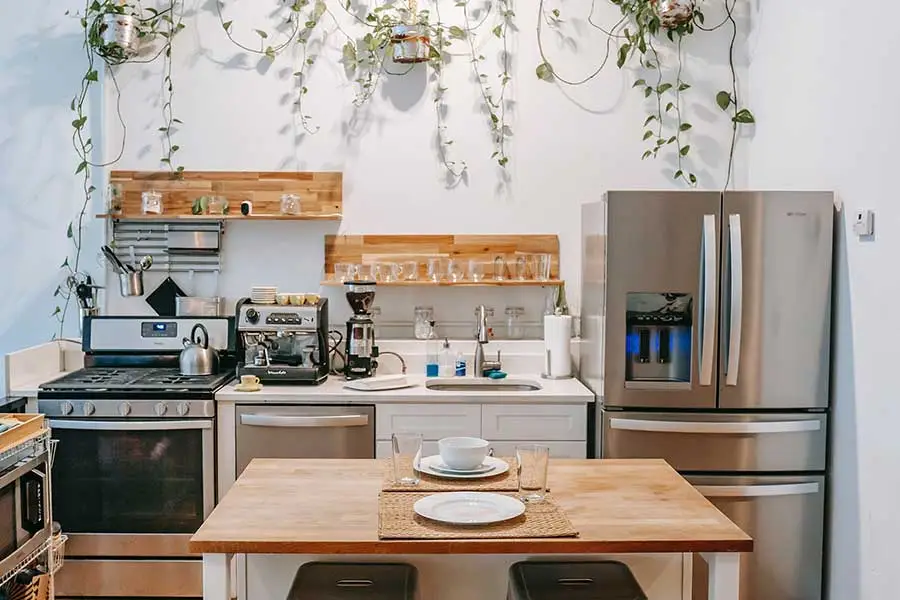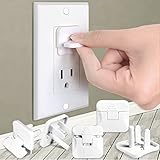Author: Tosh Lubek Published: 21st February 2022
KitchenAcorns.com is supported by its readers. Please assume links on this site are affiliate links or ads, and that I get commissions for purchases made through these links. As an Amazon Associate, I earn from qualifying purchases. Thank you if you use any of the links.
Did you know that kitchen fires are one of the leading causes of home fires in the United States? In fact, according to the National Fire Protection Association, cooking is the number one cause of home structure fires and home fire injuries. That’s why it is essential to know kitchen safety tips when using electrical appliances.
In this article, I will discuss some of the top kitchen safety tips to keep in mind when using electrical appliances. So, let’s dive right in.
Kitchen safety products available on Amazon
Tip 1: Always Operate Plugs or Switches with Dry Hands

One of the most crucial safety rules when using electrical appliances in the kitchen is to always operate plugs or switches with dry hands. This is because electricity and water don’t mix well together.
If you try to operate a plug or switch while your hands are wet, there’s a good chance that the electricity will travel through the water on your hand and into your body, resulting in an electrical shock. This can lead to severe injury or even death.
So, always make sure to operate plugs and switches with dry hands. And if you have wet hands, dry them sufficiently before using any plug or switch.
Tip 2: Keep Electrical Appliances Away from Water Sources
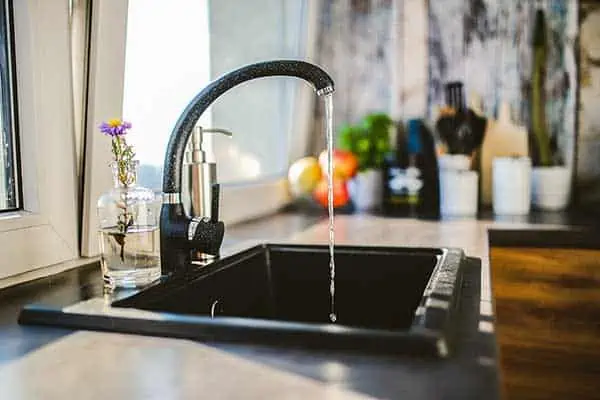
Another essential safety tip is to keep electrical appliances away from water sources. Do not place electrical appliances near water sources, such as a sink.
If you do so and accidentally knock over the appliance into the water source, there’s a high chance that the device will short circuit when it comes in contact with the water.
This can lead to an electrical shock for anyone who is using them at the time, or even worse – a fire. So always be aware of your surroundings and keep electrical appliances away from water sources.
Tip 3: Unplug Electrical Appliances When Not in Use
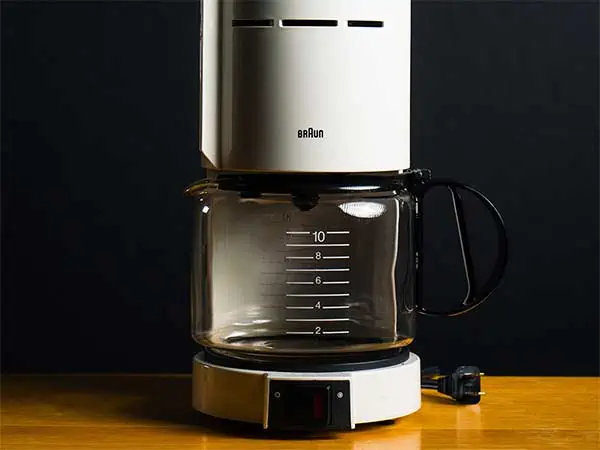
Always unplug countertop kitchen appliances like coffee makers, electric kettles, and blenders when you’re not using them. These appliances tend to draw a lot of power even when they’re turned off, which can significantly increase your energy bills.
Not to mention, even when they’re turned off, they can still create an electrical hazard, especially if you’ve placed them near a water source, such as a sink.
Tip 4: Never Use an Appliance That Has a Damaged Cord
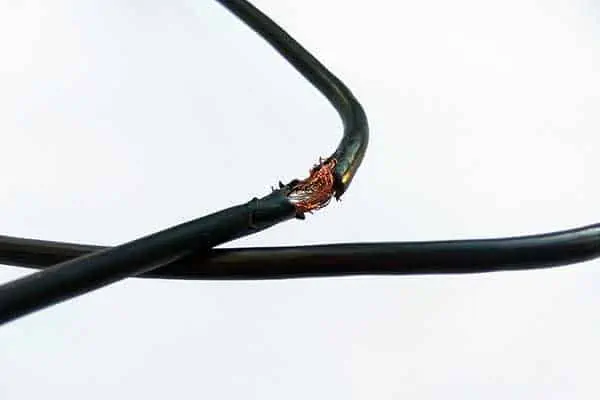
Another fundamental safety rule when using electrical appliances in the kitchen is never to use an appliance that has a damaged cord. The reason for this is that if there’s any damage to the cord, it could potentially cause the machine to overheat or even catch on fire.
Not to mention, there’s also the danger of getting an electrical shock if you were to touch a damaged cord.
Tip 5: Use One Appliance Per Outlet
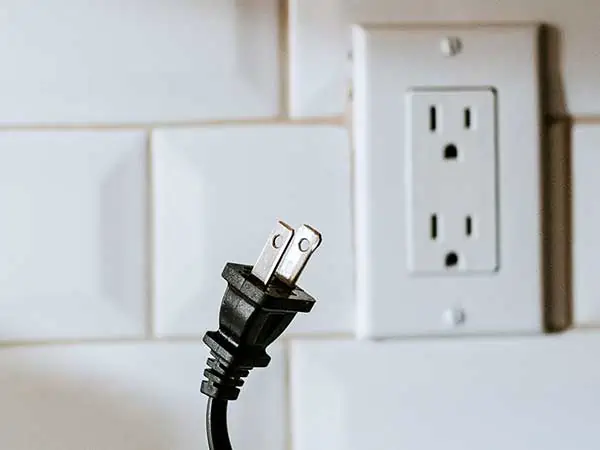
While it may seem like a good idea to use multiple appliances simultaneously by plugging them into the same outlet, this is a dangerous practice. Using numerous appliances simultaneously can overload an outlet and cause it to spark or even catch on fire
Therefore, it’s always best to use one appliance per outlet to avoid potential accidents. If you need to use multiple kitchen appliances simultaneously, have more outlets installed by a trusted electrician.
Tip 6: Avoid Leaving Kitchen Appliances Unattended
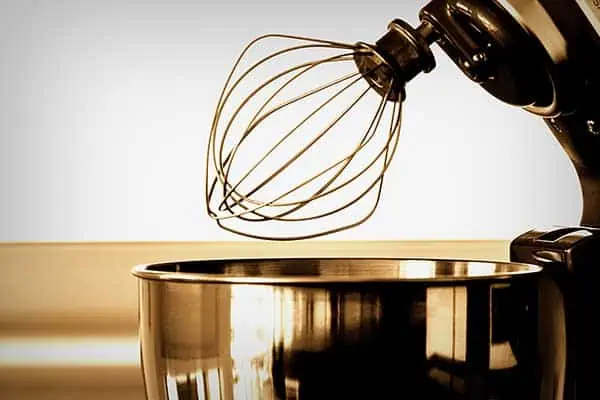
One of the most crucial safety rules when using electrical appliances, especially if you have children is to avoid leaving them unattended.
Unfortunately, children are notorious for sticking their fingers and other objects into electrical outlets. Even if your child’s never done this in the past, it only takes one mistake for things to end badly.
Therefore, always stay in the kitchen when any appliance is plugged in and turned on.
Tip 7: Don’t Use Power Strips and Extension Cords Permanently
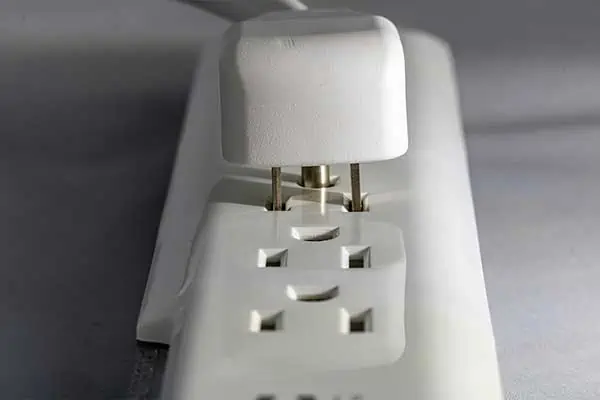
There are no doubt extension cords and power strips are incredibly convenient. They allow you to use multiple electrical appliances in any location. However, you should never permanently rely on these types of power supplies to run your kitchen appliances.
This is because extension cords and power strips are not always designed for long-term use or to handle the heavy load that comes with running high-voltage electrical devices like microwaves, refrigerators, and cookers.
Therefore, only plug an appliance into a power strip when absolutely necessary and remove the item from the extension cord as soon as possible. You should always plug your kitchen appliances directly into grounded outlets.
Tip 8: Use GFCI Outlets
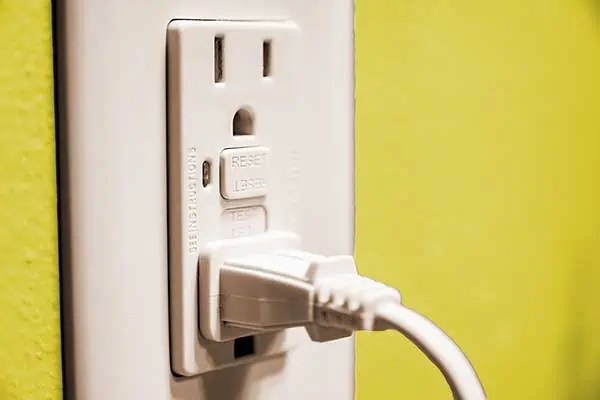
Ground-fault circuit interrupter (GFCI) outlets are special electrical outlets that can prevent fires and electrocution by shutting off the power when they detect an imbalance in the electrical current.
For instance, if you’re using a kitchen appliance that’s plugged into a GFCI outlet and it gets exposed to a lot of water, the power will immediately shut off to prevent electrocution.
For this reason, you should use GFCI outlets to plug in all kitchen appliances. If you don’t have any, have a reputable electrician install them. Also, ensure you test the GFCI outlets at least once every month to ensure they’re in good working condition.
Tip 9: Unplug Appliances Before Cleaning Them
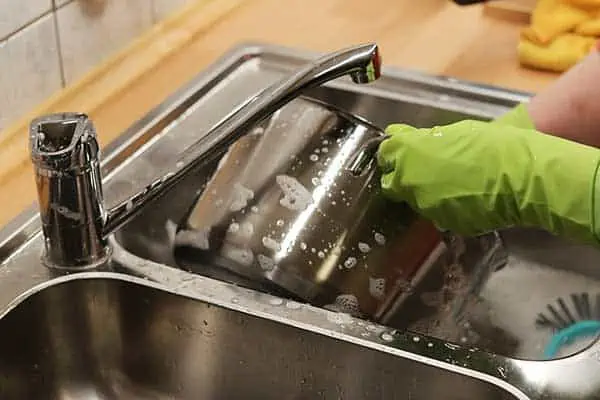
It’s also crucial to ensure you unplug all kitchen appliances before cleaning them. Many people make the mistake of thinking that they can just quickly wipe down a blender or food processor while it’s still plugged in, but this is extremely dangerous.
Doing so puts you at risk of electrocution. So, always unplug all appliances before cleaning them – even if you only plan on wiping them down for a few seconds.
Tip 10: Avoid Running Cords Under Kitchen Rugs or Carpets
Another common kitchen safety hazard is running cords under rugs or carpets. Not only does this create a tripping hazard, but it also increases the risk of an electrical fire.
So, make sure to keep all cords neatly organized and out of the way, and avoid running them under any rugs or carpets.
Wrapping Up
The kitchen is one of the most dangerous rooms in the house when it comes to electrical appliances, so it’s essential to be aware of the risks and take the necessary precautions.
Follow these safety rules when using electrical appliances in the kitchen to ensure safety and remember to always consult an electrician if you have any questions or concerns.
You might also like…
Need a new waffle maker? See the excellent choice on Amazon
Tosh learned how to cook while watching his Polish Mom at home. He also worked in a family-owned restaurant while a student and learned much from the chefs. Cooking has always interested him, especially the hearty Polish recipes he learned from his mother. He has helped create and appeared on cookery shows on radio stations in Scotland.
Recent Posts
This family pancake recipe will make about thirty-six pancakes that have a thickness of about 3/8th to half an inch and a diameter of about 4 inches. In my family, I would often prepare a batch of...
If you want to know a lot more about waffles but don’t have the time to read through loads of articles, you’re in the right place. I’ve collected together 25 of the most often asked...


